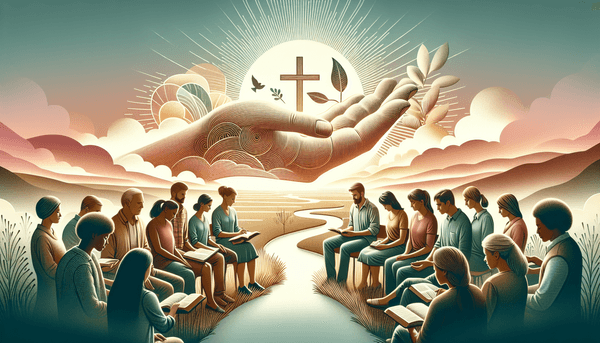Navigating Life's Challenges with God's Guidance
Life presents an array of challenges, and as believers, we are not exempt from experiencing trials and hardships. The New Testament assures us of God's grace, which is sufficient in our weakness, enabling us to overcome sin and adversity (2 Corinthians 12:9). As followers of Christ, we are no longer slaves to sin but are under the liberating grace of God (Romans 6:14). In times of brokenness, we can take comfort in knowing that the Lord is close to the brokenhearted and saves those who are crushed in spirit (Psalm 34:18). God's thoughts and ways are higher than ours, a truth that brings peace amidst unexplained events (Isaiah 55:8-9). The apostle Paul reminds us that our present sufferings are not worth comparing to the future glory that awaits us in Christ (Romans 8:18), a perspective that can help us navigate through life's darkest moments with hope and perseverance. For more insights on faith in the midst of life's storms, consider the lessons of Naaman and Job as discussed in our related article on faith in adversity.
Understanding Spiritual Gifts and Biblical Mysteries
The Bible speaks of various spiritual gifts, including speaking in tongues, which serve as a means for believers to communicate with God in a language understood only by the Spirit (1 Corinthians 14:2). The early Christian community experienced the power of the Holy Spirit vividly on the day of Pentecost, as they spoke in other tongues (Acts 2:4). Such gifts, while sometimes a subject of debate, are intended to edify the church and should be earnestly desired and practiced in love (1 Corinthians 14:39). The Book of Revelation, rich with symbolism and imagery, offers a glimpse into the spiritual realm and God's ultimate plan for humanity. It describes the two witnesses as 'the two olive trees and the two lampstands that stand before the Lord of the earth' (Revelation 11:4), representing God's power and presence. The mysteries of the Bible, while not always fully comprehensible, remind us that God's word will never fail, as declared in Luke 1:37.






